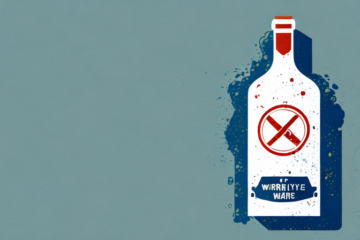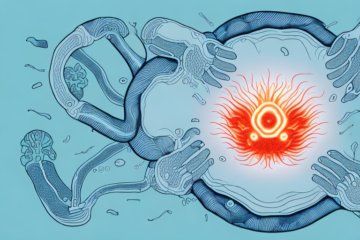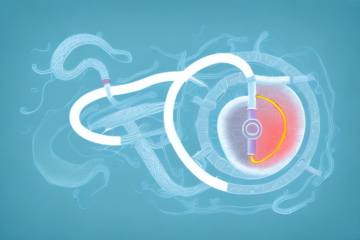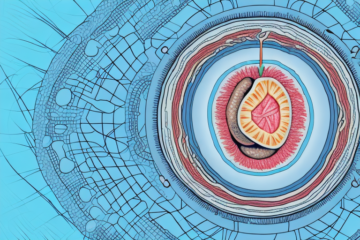Erectile dysfunction (ED) is a health condition that affects millions of men worldwide. It is a condition where men are unable to achieve or maintain an erection firm enough for sexual intercourse. While ED is a common condition in older men, it can affect men of all ages. In this article, we will dive into the details of what erectile dysfunction is, its causes, symptoms, and more.
What is Erectile Dysfunction?
Erectile dysfunction is a medical condition that affects men and causes difficulty achieving or maintaining an erection. It can cause a range of problems during sexual activity, including reduced sexual desire, difficulty achieving or maintaining an erection, and impaired sexual performance. ED occurs when there is a reduced flow of blood to the penis or when the muscles in the penis fail to relax, which allows blood to flow and result in an erection. Erectile dysfunction can be a sign of underlying health conditions such as heart disease, diabetes, and high blood pressure.
There are several risk factors that can increase the likelihood of developing erectile dysfunction. These include smoking, obesity, alcohol and drug abuse, and certain medications. Psychological factors such as stress, anxiety, and depression can also contribute to ED. It is important to address these underlying issues in order to effectively treat erectile dysfunction.
Treatment options for erectile dysfunction include medication, such as Viagra or Cialis, vacuum devices, penile injections, and surgery. Lifestyle changes such as quitting smoking, losing weight, and reducing alcohol consumption can also improve symptoms of ED. It is important to speak with a healthcare provider to determine the best course of treatment for individual cases of erectile dysfunction.
Causes of Erectile Dysfunction
There are several causes of erectile dysfunction, including physical and psychological factors. Physical causes of erectile dysfunction include diabetes, high blood pressure, obesity, hormonal imbalances, nerve damage, and side effects of medication. Psychological factors that can contribute to ED include anxiety, stress, depression, relationship problems, and performance anxiety. Often, a combination of these factors can trigger the onset of erectile dysfunction.
One of the lesser-known causes of erectile dysfunction is sleep apnea. Sleep apnea is a condition where a person’s breathing is interrupted during sleep, leading to a decrease in oxygen levels in the body. This can cause damage to blood vessels and nerves, leading to erectile dysfunction. It is important for individuals with sleep apnea to seek treatment to prevent the onset of ED.
In addition, smoking has been linked to erectile dysfunction. Smoking can damage blood vessels and decrease blood flow to the penis, making it difficult to achieve and maintain an erection. Quitting smoking can improve overall health and may also improve erectile function.
Symptoms of Erectile Dysfunction
The symptoms of erectile dysfunction include difficulty achieving or maintaining an erection, reduced sexual desire, and difficulty achieving orgasm. Other symptoms may include frustration, self-consciousness, and low self-esteem.
It is important to note that erectile dysfunction can also be a symptom of an underlying medical condition, such as diabetes, heart disease, or high blood pressure. In some cases, it may also be a side effect of certain medications or treatments.
If you are experiencing symptoms of erectile dysfunction, it is important to speak with your healthcare provider. They can help determine the underlying cause and recommend appropriate treatment options, which may include medication, therapy, or lifestyle changes.
Who is at Risk for Erectile Dysfunction?
Any man can experience erectile dysfunction regardless of age, but it is more common in men over the age of 40. Other risk factors that increase the likelihood of developing ED include obesity, smoking, alcohol consumption, and underlying health conditions such as diabetes, heart disease, and high blood pressure.
Additionally, certain medications such as antidepressants and blood pressure medications can also contribute to erectile dysfunction. Psychological factors such as stress, anxiety, and depression can also play a role in ED. It is important to talk to a healthcare provider if you are experiencing symptoms of erectile dysfunction, as it may be a sign of an underlying health condition that needs to be addressed.
Psychological Factors Contributing to Erectile Dysfunction
Psychological factors can also be a contributing factor to erectile dysfunction. Anxiety, depression, and stress are among the most common psychological factors that can cause ED. Relationship problems, performance anxiety, and a lack of confidence can also affect sexual performance.
One study found that men who experienced childhood trauma, such as physical or sexual abuse, were more likely to develop erectile dysfunction later in life. This suggests that past experiences and trauma can have a lasting impact on sexual function.
Counseling and therapy can be effective treatments for psychological factors contributing to ED. Cognitive-behavioral therapy, in particular, has been shown to help men overcome performance anxiety and improve sexual function. It is important for men to seek help and support if they are experiencing psychological factors contributing to erectile dysfunction.
Physical Factors Contributing to Erectile Dysfunction
Physical factors that can contribute to erectile dysfunction include hormonal imbalances, nerve damage, and blood flow issues. Certain medications can also cause ED as a side effect, including antidepressants, blood pressure medications, and medications used to treat prostate cancer.
In addition to the aforementioned physical factors, lifestyle choices such as smoking, excessive alcohol consumption, and drug use can also contribute to erectile dysfunction. Obesity and a sedentary lifestyle can also increase the risk of developing ED. It is important to maintain a healthy lifestyle and seek medical attention if experiencing symptoms of erectile dysfunction.
Lifestyle Changes to Prevent or Treat Erectile Dysfunction
There are several lifestyle changes that men can make to prevent or treat erectile dysfunction. These include maintaining a healthy diet, exercising regularly, losing weight, quitting smoking, managing stress, and reducing the consumption of alcohol. In addition, getting enough sleep and maintaining an active sex life can also minimize the risk of developing ED.
Another important lifestyle change that can help prevent or treat erectile dysfunction is managing any underlying medical conditions. Conditions such as high blood pressure, diabetes, and heart disease can increase the risk of developing ED. By managing these conditions through medication and lifestyle changes, men can reduce their risk of experiencing erectile dysfunction.
It is also important for men to communicate openly with their partners about any concerns or issues related to sexual health. This can help reduce stress and anxiety, which can contribute to ED. Seeking professional help from a therapist or counselor can also be beneficial for managing stress and improving overall mental health.
Diagnosis and Treatment of Erectile Dysfunction
Diagnosis of ED involves a physical examination, medical history, and possibly lab tests to identify any underlying health conditions that may be causing the problem. Treatment options for ED include lifestyle changes, medication, and alternative therapies. Medications used to treat erectile dysfunction include PDE5 inhibitors, which work by increasing blood flow to the penis. Alternative therapies that may alleviate symptoms of ED include acupuncture, ginseng, and L-arginine supplementation.
Lifestyle changes that may help improve symptoms of ED include regular exercise, maintaining a healthy weight, quitting smoking, and reducing alcohol consumption. Additionally, counseling or therapy may be recommended to address any psychological factors contributing to the problem. It is important to consult with a healthcare provider to determine the best course of treatment for individual cases of ED.
Prognosis and Outlook for Men with Erectile Dysfunction
Erectile dysfunction can be a challenging condition for men and impact their quality of life. The good news is that it is a treatable condition, and with the right diagnosis and treatment, most men can overcome it. It is essential to seek medical help early on and follow the treatment plan provided by your healthcare provider.
There are several treatment options available for men with erectile dysfunction, including medication, lifestyle changes, and therapy. Medications such as sildenafil, tadalafil, and vardenafil are commonly prescribed to help improve blood flow to the penis and facilitate an erection. Lifestyle changes such as quitting smoking, reducing alcohol consumption, and exercising regularly can also help improve erectile function. Therapy, such as cognitive-behavioral therapy or couples therapy, can help address underlying psychological factors that may be contributing to the condition.
It is important to note that erectile dysfunction can sometimes be a symptom of an underlying medical condition, such as diabetes or heart disease. Therefore, it is crucial to undergo a thorough medical evaluation to identify any underlying health issues that may need to be addressed. With the right treatment and management, most men with erectile dysfunction can regain their sexual function and improve their overall quality of life.
Prevention Strategies for Avoiding Erectile Dysfunction
Prevention strategies for avoiding erectile dysfunction include maintaining a healthy weight, quitting smoking, reducing alcohol intake, reducing stress, and engaging in regular exercise. Men should also seek medical care to manage underlying health conditions such as diabetes, high blood pressure, and heart disease.
In addition to these prevention strategies, it is important for men to communicate openly with their partners about any concerns or issues related to sexual health. Seeking counseling or therapy can also be helpful in addressing any psychological factors that may contribute to erectile dysfunction. It is important to remember that erectile dysfunction is a common condition and seeking help is a sign of strength, not weakness.
Talking About Erectile Dysfunction with Your Partner
Talking about ED can be challenging, but it is essential to be open and honest with your partner. Having open communication can improve trust, intimacy, and the overall quality of the relationship. Your partner can be a source of emotional support and help you in seeking the necessary medical assistance.
It is important to remember that ED is a common condition that affects many men, and it is not a reflection of your masculinity or worth as a partner. By discussing the issue with your partner, you can work together to find solutions and ways to manage the condition.
Additionally, it is important to approach the conversation with empathy and understanding. Your partner may have their own concerns and feelings about the situation, and it is important to listen and validate their perspective. By working together and supporting each other, you can strengthen your relationship and overcome any challenges that may arise.
How Erectile Dysfunction Impacts Mental Health
Erectile dysfunction can lead to several mental health issues such as anxiety, depression, and lowered self-esteem. Men with ED may experience embarrassment, shame, or frustration. However, with the right treatment, men can minimize the risk of developing these mental health conditions and improve their overall quality of life.
In conclusion, erectile dysfunction is a common health condition that can affect men of all ages. It is essential to seek medical help early on to avoid complications and improve quality of life. Lifestyle changes, medication, and alternative therapies can alleviate symptoms of ED. Additionally, open communication with loved ones can improve relationships and help men cope with the emotional impact of ED.
It is important to note that erectile dysfunction can also have an impact on a man’s romantic relationships. The inability to perform sexually can lead to feelings of inadequacy and strain on the relationship. It is crucial for partners to communicate openly and support each other through this difficult time. Seeking couples therapy or counseling can also be beneficial in addressing the emotional impact of ED on the relationship.










